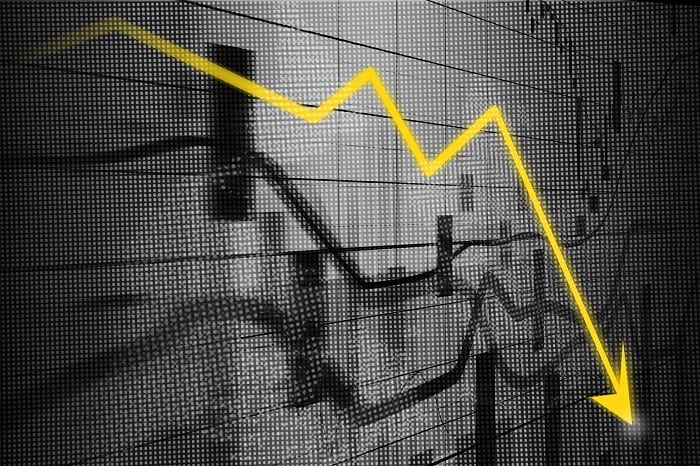Overnight in the US, the Dow Jones share index saw the biggest one-day drop off since the financial crisis, plunging 1,175 points, and the largest percentage decline since August 2011, by 4.6% at close. The S&P 500 also plunged by 4.1%.
The aftermath of this was seen by markets around the world as Japan’s Nikkei 225 index closed 4.7% lower and Hong Kong’s Hang Seng Index languished 5.12%.
Falls in Europe followed as the FTSE 100 Index plunged by 230 points or 2.5%, while Euro Stoxx 50 fell 2%, Germany’s Dax by 2.7% and Cac 40 in France by 2.1%, respectively.
Peter Garnry, head of equity Strategy at Saxo Bank, said this was because “the low volatility regime is likely dead – 2017 and early 2018 were a crazy anomaly”.
However, the sharp plunge began last Friday when the US posted positive economic data on average earnings and traders began to worry that inflation could force central banks to increase interest rates.
Miles Eakers, chief market analyst at Centtrip, said: “But the good economic news is not so good for bonds – they were sold off, driving yields on government debt higher. For now, this could just be a correction.
“As stock prices have surged to their highest level, the ratio relative to a company’s per-share earnings was very close to what was happening just before the Wall Street Crash of 1929 and the dotcom bubble in 2001.
“Most economists argued equities were overpriced and that a correction was healthy. But should this rout continue, panic selling and fear could kick in and trigger a sharp correction lower.”
Keep calm and carry on
Despite markets plunging around the world, industry professionals remain positive that it will pass.
James Bateman, chief investment officer, multi asset, Fidelity International, said the recent sell off in global markets is the “greatest sign of real health in markets for a long time.”
“Markets have seen a pullback in the past few days,” he said. “Let’s be clear – in the long span of financial history, this is not news. Yet in a world where the concept of a “correction” almost feels alien and where equities felt like an unstoppable one-way bet for a while, the normality of a setback can feel more painful.
“Holding this course as volatility eases won’t seem easy – but at this stage of the cycle, the money is made by keeping your head when others are losing theirs.”
Bateman said the prospect of inflation remaining low forever will not last. “We have a new and untested Fed Chair. It would be more worrying if markets didn’t react to all of this,” he added.
Fahad Kamal, senior market strategist at Kleinwort Hambros, agreed and said to “keep calm and carry on”.
“Corrections are normal. Forceful, unexpected sell-offs – and gains – can and do happen. In fact, that we have not had one in so long was odd.”









